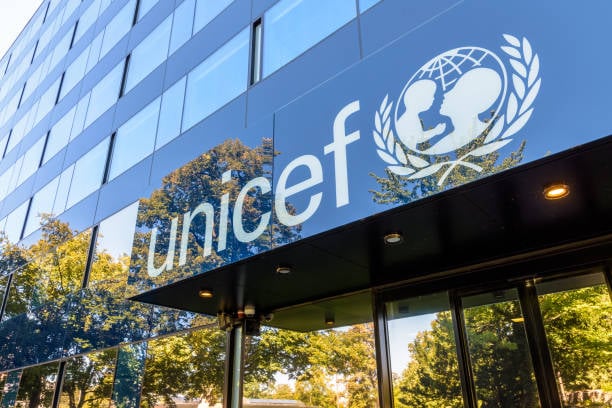The Yobe State Primary Healthcare Board, with the support from UNICEF has successfully engaged media practitioners ahead of the integrated measles rubella, polio, malaria and Neglected Tropical Diseases, NTDs and Human Papillomavirus (HPV) campaign scheduled for Oct. 18 to Oct. 23 across the state.
The engagement which has participants from across various media including public and private, held at the Medical and Health Workers Union Conference Hall in Damaturu
The Executive Secretary Yobe State Primary Healthcare Board Dr. Babagana Kundi Machina represented by the health Promotion Officer, Mohammed Kado, urged media practitioners to help sensitize the public about the campaign and its importance with a view to achieving the desired goals.
Dr Kundi who expressed happiness with the efforts of the journalists in disseminating the agency’s activities stressed the need for more collaboration for the benefit of the people of the state.
The Chairman of the State Social Mobilization and Community Engagement Working Group (SM&CEWG), Alh. Ali Musa Yawale, welcomed the participants and urged them to pay close attention to the presentations for better understanding and reporting.
Mr Barka Darpi, UNICEF Social and Behavioural Change Officer, said the introduction of the measles-rubella vaccine was part of efforts to close immunity gaps and reduce the burden of preventable childhood diseases.
According to him, Nigeria accounts for 54 per cent of Africa’s polio burden and ranks second in measles incidence after the Democratic Republic of Congo.
Darpi said the integrated campaign would protect a large cohort of children, interrupt transmission of measles, rubella and polio, strengthen routine immunisation, and reduce inequities in vaccine coverage.
Mr Benjamin Abata, the State Coordinator for Neglected Tropical Diseases Control Programme, said the integrated approach would ensure efficiency and reduce stress on both health workers and communities.
“Behavioural change, provision of household toilets, and water supply in schools and markets are critical to reducing the spread of these diseases,” Abata said.







